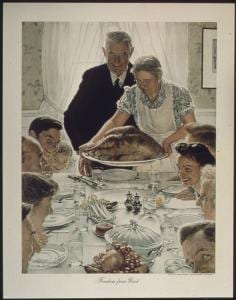Here is your open thread for March 6, 2020.
Today is the 76th birthday of original Supreme Mary Wilson:
Remember the Alamo? That battle came to an end on this day in 1836. The slain defenders of the Alamo have become the stuff of legend here in America, where they’re regarded as heroes. Given that, perhaps it’s useful in 2020 to also remember they were illegal immigrants who had taken up arms, in part, in response to anti-immigrant rules imposed in the border region.
On this day 163 years ago, Roger Taney secured his eternal standing as a disgrace to himself, his country, his profession, and his entire branch of government by presenting the majority opinion in the Supreme Court case of Dred Scott v. Sanford.
According to his own words, Taney knew exactly what he was doing. “The question is simply this,” he wrote: “Can a negro, whose ancestors were imported into this country, and sold as slaves, become a member of the political community formed and brought into existence by the Constitution of the United States, and as such become entitled to all of the rights, and privileges, and immunities, guarantied by that instrument to the citizen?”
Taney thought the answer was, and ought to be, no. Today, 163 years later, many Americans still agree with that answer. Some of them are pastors, some are elected officials. Some even, like Taney, work as judges in federal courts.
The March 6, 1943 issue of The Saturday Evening Post featured on its cover Norman Rockwell’s famous painting “Freedom From Want.” It was part of Rockwell’s series illustrating the “Four Freedoms” that President Franklin D. Roosevelt had described in his 1941 State of the Union address: Freedom of Speech, Freedom of Worship, Freedom From Want, and Freedom From Fear.
Those last two don’t get as much attention as they should. Speak up on their behalf in post-Reagan, post-Trump America and you’re likely to be condemned as some kind of commie socialist — as though it were un-American or anti-American to believe that Americans ought to be able to live free from want and free from fear. That’s nuts, of course, unless the people saying such rubbish think they stand to gain somehow from keeping Americans in want and in fear. (By which I mean that they do.)
It might be helpful or useful or smart to re-enlist Norman Rockwell in 2020, to remind our fellow Americans that the desire to ensure that we are all free from want and free from fear is as patriotically all-American as … well, as Norman Rockwell.
Here’s a bit of the essay the Post commissioned to accompany Rockwell’s “Freedom From Want.”
Our march toward security and peace is the march of freedom — the freedom that we should like to become a living part of. It is the dignity of the individual to live in a society of free men, where the spirit of understanding and belief exist; of understanding that all men are equal; that all men, whatever their color, race, religion or estate, should be given equal opportunity to serve themselves and each other according to their needs and abilities.
But we are not really free unless we use what we produce. So long as the fruit of our labor is denied us, so long will want manifest itself in a world of slaves. It is only when we have plenty to eat — plenty of everything — that we begin to understand what freedom means. To us, freedom is not an intangible thing. When we have enough to eat, then we are healthy enough to enjoy what we eat. Then we have the time and ability to read and think and discuss things. Then we are not merely living but also becoming a creative part of life. It is only then that we become a growing part of democracy.
That was written by Carlos Bulosan, an immigrant from the Philippines who was later blacklisted as a socialist and died in poverty in 1956. (“The free? Who said the free? Not me.”)
 On March 6, 1983, the Los Angeles Express defeated the New Jersey Generals in the first-ever game of the USFL. The league slowly became more popular and financially successful over its next two seasons until it committed suicide thanks to Generals’ owner Donald J. Trump’s insistence that it switch from its NFL-off-season spring schedule to compete with the more established league head-to-head. That was the shart of the deal that killed the USFL.
On March 6, 1983, the Los Angeles Express defeated the New Jersey Generals in the first-ever game of the USFL. The league slowly became more popular and financially successful over its next two seasons until it committed suicide thanks to Generals’ owner Donald J. Trump’s insistence that it switch from its NFL-off-season spring schedule to compete with the more established league head-to-head. That was the shart of the deal that killed the USFL.
March 6 is the birthday of great artists Michelangelo (1475), Cyrano de Bergerac (1619), Elizabeth Barrett Browning (1806), and Lou Costello (1906). Hall-0f-famers Lefty Grove (1900) and Willie Stargell (1940) share a March 6 birthday.
Alan Greenspan turns 94 today. He’s presumably celebrating his birthday by devising some new scheme to ensure that Generation X never collects Social Security benefits. Pink Floyd guitarist David Gilmour turns 74. High-jump revolutionary Dick Fosbury turns 73.
Rob Reiner turns 73 today too. Here are the first seven movies he directed: This Is Spinal Tap, The Sure Thing, Stand By Me, The Princess Bride, When Harry Met Sally, Misery, A Few Good Men. That’s quite a run. (It’s his birthday, so we won’t mention the movie that followed those.)
Godspell composer Stephen Schwartz turns 71 today. Connie Britton turns 53. Rappers Shaquille O’Neal and Beanie Sigel turn 48 and 46, respectively. Tim Howard, America’s goalie, turns 41.
Finally, the cult-classic Coen brothers movie The Big Lebowski was released on this day, March 6, in 1988. The film later became a literal cult classic when it formed the basis and guiding philosophy for the Church of the Latter-Day Dude. More than 400,000 Dudeist priests have been ordained around the world, some of whom serve as legal marriage officiants in some US states. Dudeists commemorate today as their highest holy day, The Day of the Dude. You might choose to celebrate it with them. Or not, man, whatever.
Talk amongst yourselves.












